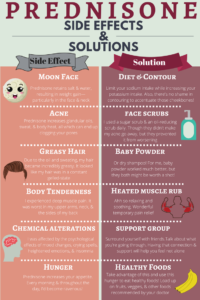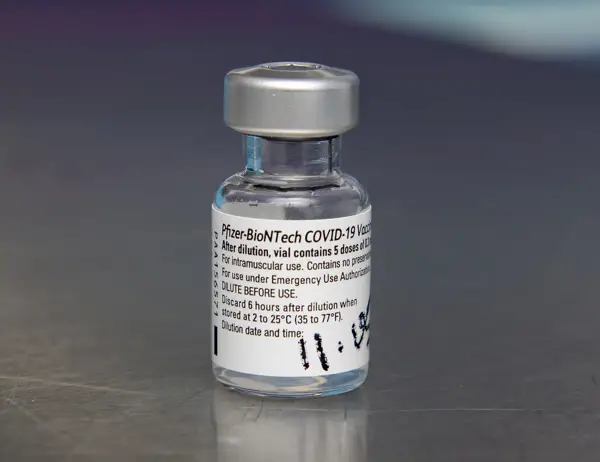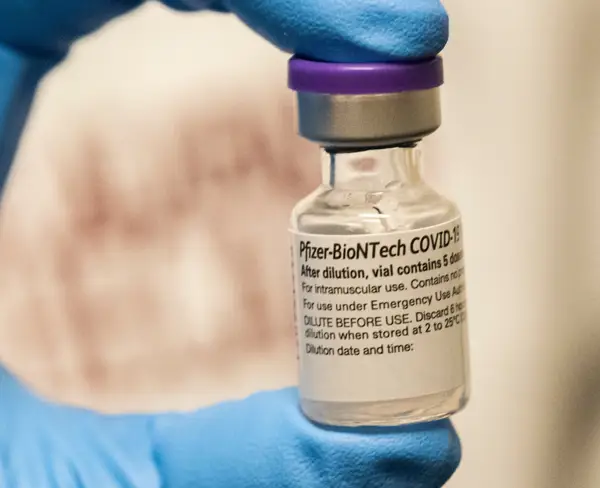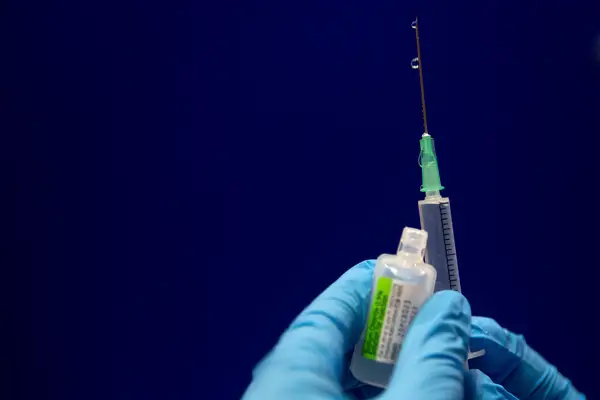Table of Contents
- Introduction
- Common Side Effects
- Less Common Side Effects
- Severe Side Effects
- Rare Side Effects
- Long-term Effects
- Conclusion
1. Introduction
In this article, we will explore the potential side effects associated with the Pfizer-BioNTech Bivalent Vaccine. Developed as a vital tool in combatting infectious diseases, it's crucial to be aware of any potential risks before making an informed decision regarding your health.
2. Common Side Effects
This section will delve into the common side effects that individuals may experience after receiving the Pfizer-BioNTech Bivalent Vaccine. These include pain at the injection site, fatigue, headache, muscle pain, and chills. Understanding these common reactions can help alleviate concerns and provide clarity during your vaccination journey.
1. Injection Site Reactions
One of the common side effects of the Pfizer-BioNTech bivalent vaccine is injection site reactions. These reactions may include pain, redness, or swelling at the injection site. It is important to note that these reactions are usually mild and resolve on their own within a few days.
2. Fatigue
Another common side effect is fatigue or feeling tired after receiving the Pfizer-BioNTech bivalent vaccine. It is a temporary reaction that occurs due to the immune system's response to the vaccine. Rest and proper hydration can help alleviate this fatigue.
3. Headache
Headaches are also reported as a common side effect of the Pfizer-BioNTech bivalent vaccine. This is typically a mild to moderate headache that may occur within a day or two after vaccination. Over-the-counter pain relievers can help in relieving this symptom.
4. Muscle Pain
Some individuals may experience muscle pain or discomfort after receiving the Pfizer-BioNTech bivalent vaccine. This can affect different areas of the body, including the arm where the vaccine was administered. This side effect is usually temporary and can be managed with rest, applying a warm compress, or taking over-the-counter pain relievers.
5. Fever
Another common side effect is a low-grade fever. This occurs as a natural immune response to the vaccine. It is usually mild and goes away on its own within a day or two. Drinking plenty of fluids and taking rest can help in reducing fever.
It is important to remember that these side effects are generally mild and short-lived, resolving without any complications. However, if any severe or persistent side effects occur, it is recommended to seek medical attention immediately.

3. Less Common Side Effects
Here, we will discuss the less common side effects associated with the Pfizer-BioNTech Bivalent Vaccine. These might include fever, nausea, swollen lymph nodes, and joint pain. By being aware of these potential reactions, individuals can seek appropriate medical advice if needed and make informed decisions.
While the Pfizer-BioNTech Bivalent Vaccine is generally safe and well-tolerated, there are some less common side effects that may occur. It is important to note that these side effects are typically mild and temporary.
1. Headache: Some individuals may experience mild headaches after receiving the Pfizer-BioNTech Bivalent Vaccine. This side effect usually resolves within a day or two and can be managed with over-the-counter pain relievers.
2. Fatigue: Feeling tired or experiencing fatigue is another less common side effect. This may occur due to the body's immune response to the vaccine. It is recommended to rest and drink plenty of fluids to alleviate this symptom.
3. Muscle Pain: A small percentage of individuals may experience muscle pain or discomfort in the days following vaccination. This can be relieved with rest, gentle stretching exercises, and over-the-counter pain relievers if necessary.
It is important to remember that these less common side effects are outweighed by the benefits of vaccination, which include protection against COVID-19. If you have any concerns about the Pfizer-BioNTech Bivalent Vaccine or experience severe side effects, please consult your healthcare provider.

4. Severe Side Effects
This section aims to shed light on severe side effects that are very rare but possible after receiving the Pfizer-BioNTech Bivalent Vaccine. It will cover conditions such as allergic reactions, anaphylaxis, and myocarditis. It is essential to understand these rare side effects for better preparedness and to know when to seek immediate medical attention.
The Pfizer-BioNTech Bivalent Vaccine has shown remarkable efficacy in combating the COVID-19 virus. However, it is essential to be aware of the potential severe side effects that may occur:
- Allergic Reactions: Some individuals may experience severe allergic reactions, such as anaphylaxis, shortly after receiving the vaccine. These cases are rare but require immediate medical attention.
- Myocarditis and Pericarditis: In very rare instances, particularly among young males, there have been reported cases of inflammation of the heart muscle (myocarditis) and the lining surrounding the heart (pericarditis) following vaccination.
- Blood Clots: A small number of individuals have experienced blood clotting disorders after receiving the vaccine, such as deep vein thrombosis (DVT) or cerebral venous sinus thrombosis (CVST).
- Gastrointestinal Issues: Some individuals may experience nausea, vomiting, or diarrhea as temporary side effects of the vaccine.
It is crucial to remember that severe side effects from the Pfizer-BioNTech Bivalent Vaccine are extremely rare. The benefits of receiving the vaccine in preventing COVID-19 far outweigh the potential risks. Consult with your healthcare professional for further information and guidance.

5. Rare Side Effects
In this section, we will explore rare side effects associated with the Pfizer-BioNTech Bivalent Vaccine, such as blood clotting disorders or neurological complications. While the occurrence of these side effects is extremely rare, having knowledge about them enables individuals to stay vigilant and consult medical professionals when necessary.
The Pfizer-BioNTech bivalent vaccine has been proven to be highly effective in preventing COVID-19. However, like any medication, it may also have rare side effects. While these side effects are not common, it's important to be aware of them.
1. Allergic Reactions
Some individuals may experience allergic reactions to the Pfizer-BioNTech bivalent vaccine. These reactions are very rare, occurring in a small percentage of vaccinated people. If you have a history of severe allergic reactions, it is important to consult your healthcare provider before receiving the vaccine.
2. Myocarditis and Pericarditis
A rare side effect of the Pfizer-BioNTech bivalent vaccine is the inflammation of the heart muscles (myocarditis) or the lining around the heart (pericarditis). While this condition is rare, it mostly affects young males after the second dose. If you experience chest pain, shortness of breath, or irregular heartbeat after vaccination, seek immediate medical attention.
3. Blood Clots
In extremely rare cases, individuals may develop blood clots after receiving the Pfizer-BioNTech bivalent vaccine. This condition, known as vaccine-induced immune thrombotic thrombocytopenia (VITT), typically affects a small number of people. If you experience severe headaches, blurred vision, or unusual swelling, contact your healthcare provider immediately.
4. Guillain-Barré Syndrome
Guillain-Barré syndrome is an autoimmune disorder that affects the nerves. In rare cases, the Pfizer-BioNTech bivalent vaccine has been associated with an increased risk of developing this condition. Symptoms may include muscle weakness, tingling sensations, and difficulty walking. If you experience these symptoms, seek medical assistance promptly.
5. Bell's Palsy
Bell's Palsy, a temporary facial paralysis, is another rare side effect associated with the Pfizer-BioNTech bivalent vaccine. While the exact cause is not clear, the risk is minimal and the condition usually resolves itself within a few weeks. If you experience sudden facial weakness or drooping, contact your healthcare provider.
Remember, although these rare side effects exist, the overall benefits of receiving the Pfizer-BioNTech bivalent vaccine outweigh the risks for most people. Consult with your healthcare provider to understand your personal risk factors and make an informed decision about vaccination.

6. Long-term Effects
This section will focus on discussing the long-term effects of the Pfizer-BioNTech Bivalent Vaccine, if any, based on the available research. Understanding the potential long-term outcomes can help individuals make informed decisions about their health and assess the risks and benefits associated with the vaccine.
The Pfizer-BioNTech Bivalent Vaccine has shown remarkable effectiveness in combating various diseases and has been administered to millions of individuals worldwide. While the vaccine's immediate side effects are well-documented, it is important to examine its potential long-term effects as well.
Extensive research and monitoring have been conducted to understand the long-term impact of the Pfizer-BioNTech Bivalent Vaccine side effects. However, as the vaccine is relatively new, conclusive data on its long-term effects is still being gathered.
Based on available research, there is currently no evidence to suggest any significant long-term side effects from the Pfizer-BioNTech Bivalent Vaccine. Common short-term side effects, such as pain at the injection site, mild fever, and fatigue, typically resolve within a few days. Serious long-term complications have not been identified at this time.
Nevertheless, ongoing surveillance and research continue to closely monitor any potential long-term effects associated with the Pfizer-BioNTech Bivalent Vaccine. Rigorous studies are being conducted to assess the vaccine's safety profile in different populations, including any potential long-term risks or benefits.
It is essential to emphasize that the benefits of receiving the Pfizer-BioNTech Bivalent Vaccine, including protection against severe illness and the potential to curb the spread of diseases, far outweigh the risk of any potential long-term effects. The vaccine is a crucial tool in our collective fight against various illnesses and is recommended by healthcare authorities worldwide.
Individuals considering the vaccine should consult with healthcare professionals to understand their individual risk factors and make an informed decision. Healthcare providers can provide personalized advice and address any concerns regarding the vaccine's long-term effects based on the most current available evidence.

7. Conclusion
In conclusion, this comprehensive article aimed to provide an understanding of the potential side effects of the Pfizer-BioNTech Bivalent Vaccine. By being informed about the common, less common, severe, and rare side effects, individuals can make educated decisions regarding their health and consult healthcare professionals if necessary.
Key Takeaways
- Common side effects include pain at the injection site, fatigue, headache, muscle pain, and chills.
- Less common side effects might include fever, nausea, swollen lymph nodes, and joint pain.
- Severe side effects are extremely rare but can include allergic reactions, anaphylaxis, and myocarditis.
- Rare side effects may involve blood clotting disorders or neurological complications, but these are very uncommon.
- Research on long-term effects is ongoing, and no conclusive evidence regarding any significant long-term effects has been found.
FAQ
Q: Are the side effects of the Pfizer-BioNTech Bivalent Vaccine severe?
A: While most side effects are mild and transient, severe side effects are extremely rare.
Q: What should I do if I experience severe side effects?
A: If you experience severe side effects, such as difficulty breathing, chest pain, or swelling, seek immediate medical attention.
Q: Can I take over-the-counter painkillers to alleviate common side effects?
A: Yes, over-the-counter painkillers can help relieve common side effects, but consult your healthcare provider for guidance.
Q: How long do the common side effects typically last?
A: Common side effects usually resolve within a few days after vaccination.



Recent Comments